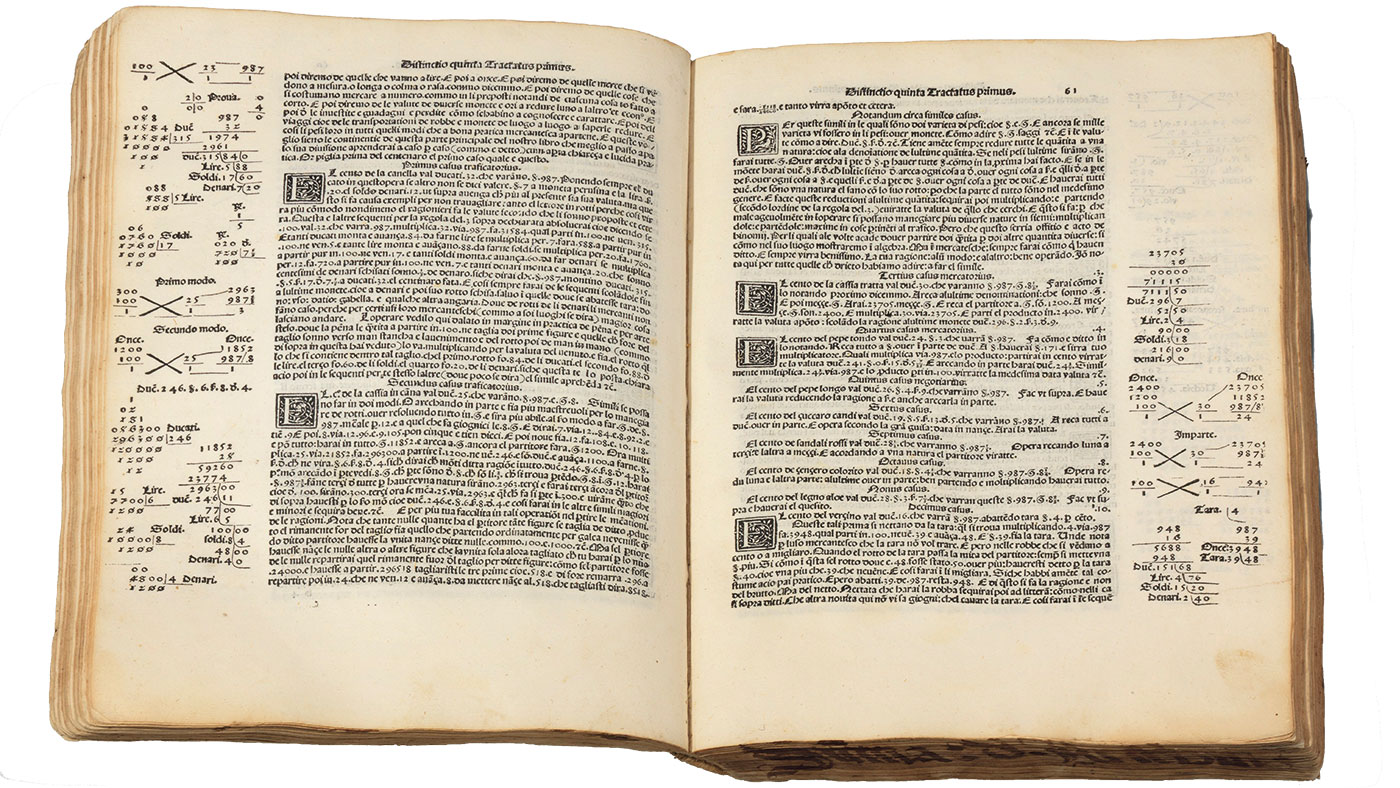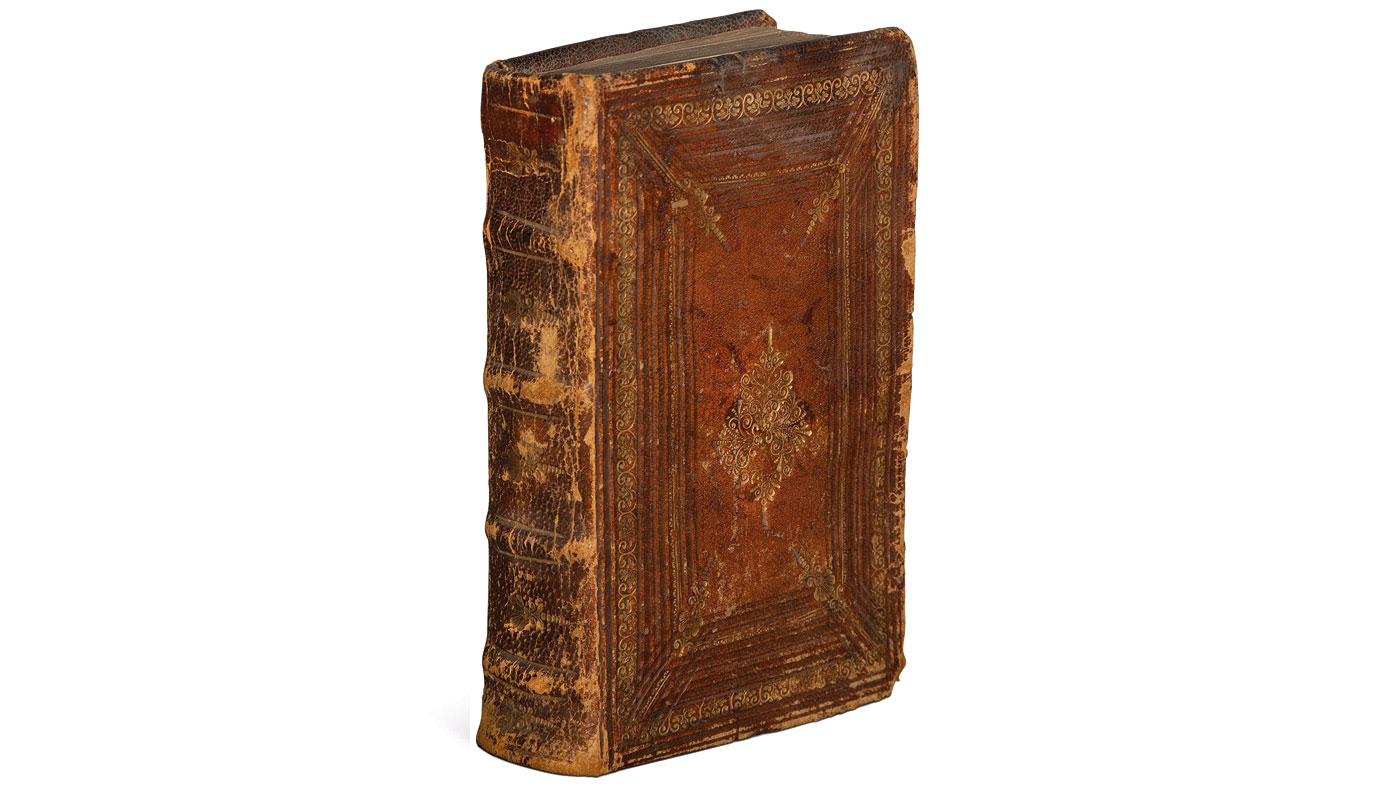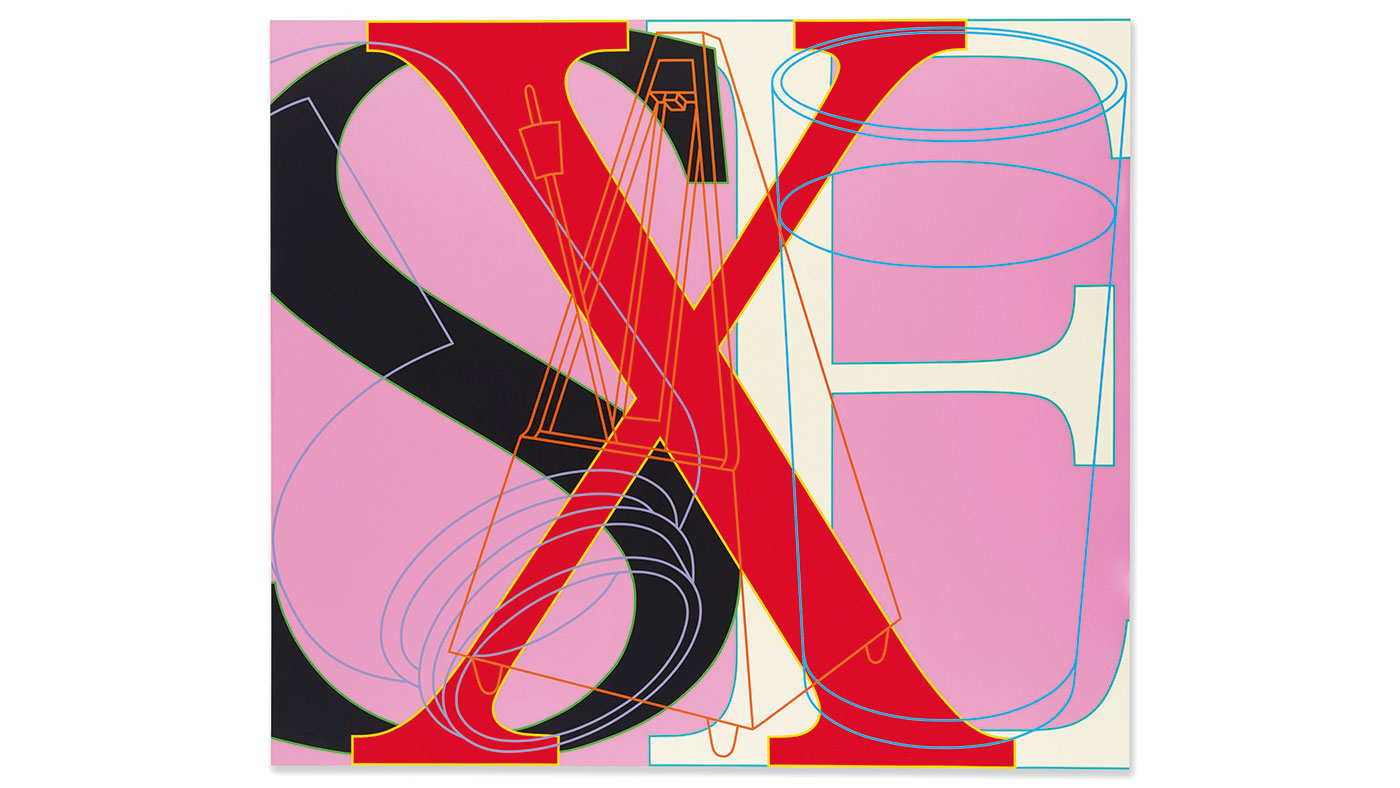Summa de arithmetica: a classic book for bean counters
One of the first vernacular mathematics texts still has wisdom to offer

A free daily email with the biggest news stories of the day – and the best features from TheWeek.com
You are now subscribed
Your newsletter sign-up was successful

If you find yourself busy putting your accounts in order as we approach the end of the tax year, spare a thought for Luca Pacioli. The Franciscan friar published his Summa de arithmetica, geometria, proportione et proportionalità in Venice, on 20 November 1494. It was one of the first books in the West to be written and published in the vernacular – Italian – on maths, and algebra in particular.
But it is the “how to” guide on Venetian-style bookkeeping, the chapter entitled Particularis de computis et scripturis, for which it is most famous, as Jane Gleeson-White explains in her 2011 history, Double Entry. Fuelled by the big technological innovation of the early Renaissance, the printing press, Summa revolutionised the way European merchants kept their books, because the merchant who follows the Venetian method will know “all about his business and will know exactly whether his business goes well or not”, as Pacioli wrote. “Therefore the proverb: If you are in business and do not know all about it, your money will go like flies – that is, you will lose it.” Today, we know that method as double-entry bookkeeping.
The Week
Escape your echo chamber. Get the facts behind the news, plus analysis from multiple perspectives.

Sign up for The Week's Free Newsletters
From our morning news briefing to a weekly Good News Newsletter, get the best of The Week delivered directly to your inbox.
From our morning news briefing to a weekly Good News Newsletter, get the best of The Week delivered directly to your inbox.
Before Pacioli came along, most merchants, such as those in Florence, were recording their debts and credits, profits and losses, in one column. But in Venice, they were already doing things differently. Thanks to their interactions with the Arab world, the merchants of Venice had learnt to use two columns – one for debit (from the Latin, debere, to owe) and one for credit (credere, to believe). For every entry in one column, an equal and opposite entry in ducats (or the currency of your choice) had to be made in the other.
That way, the merchant could “balance the books”, of which there were three – the memorandum, for jotting down the details of transactions as they took place; the journal, which was a neater version; and the two-columned ledger.

If the ledger didn’t balance, our merchant could go back through the memorandum and journal to find the error. Only then could he know how his business was really doing. It was well worth keeping your accounts neat and tidy, because after being stamped as legal documents, they would ideally be deposited with bank clerks, about whom Pacioli was scathing. “Woe to you if you have anything to do with these people,” he cautions. “Maybe they mean well, nevertheless they may show ignorance.” Plus ça change…
A copy of Summa fresh off the press (which would have taken up to 12 months for the first print run of 2,000 copies) would have set you back 119 soldi – not cheap (Aesop’s Fables cost two soldi), “but well within the means of the wealthy merchants”, says Jane Gleeson-White. (Indeed, after later house sharing with Leonardo da Vinci, Pacioli died a wealthy man.
A free daily email with the biggest news stories of the day – and the best features from TheWeek.com
The year after Summa was published, Pacioli appeared in a painting by Jacopo de’ Barbari, with, as one theory asserts, a young Albrecht Dürer.) You, too, can pick up a copy from that first 1494 print run. But it will cost you rather more than 119 soldi, when it comes up for auction at Christie’s in New York on 12 June. It is expected to fetch between $1m and $1.5m. Just remember to make your two columns wide enough for all those zeros.

Four tips for stock investors
The first printed book to describe a stock exchange was sold in an online auction held by Sotheby’s shortly before Christmas, reports Bloomberg. Published in 1688, the aptly named Confusion of Confusions was written in Spanish by Joseph Penso de la Vega as a primer to the Amsterdam stock exchange, founded by the Dutch East India Company in 1602. Vega was a Sephardic Jew, who had immigrated from Spain to Amsterdam earlier in the century. In Confusions, Vega explains “puts” (rights to sell shares at a price), “calls” (rights to buy), liquidity pools, and manipulations, and how to invest. The main text is written as a series of dialogues between stock characters such as a philosopher, a merchant, and a shareholder. It is in the second dialogue that Vega sets out his four main principles that still ring true today:
► Never give anyone advice on buying and selling shares, because you could always be wrong;
► Take your gains, and don’t worry about missed profits, “because an eel may escape sooner than you think”;
► Profits are “the treasures of goblins”, meaning a profit today could be a loss tomorrow;
► Don’t overreact to bad news. “He who knows how to endure blows without being terrified by the misfortune resembles the lion who answers the thunder with a roar, and is unlike the hind, who, stunned by the thunder, tries to flee.”
Confusions sold at auction for $375,000, above its $300,000 upper estimate.

Auctions
Going: George Michael’s British contemporary art collection is heading to Christie’s in London for an evening sale on 14 March, and an online sale that runs until next Friday. Works by Damien Hirst, Tracey Emin, Jake and Dinos Chapman and Sarah Lucas feature in the main evening sale. Hirst’s The Incomplete Truth and Saint Sebastian, Exquisite Pain – a bullock peppered with arrows in formaldehyde – have been valued at up to £1.5m each.
In 2006, Emin introduced George Michael to Michael Craig-Martin, an older artist and teacher often credited as the godfather of the YBAs (Young British Artists), says The Daily Telegraph. The two became close friends, and in 2008 the late singer bought Craig-Martin’s painting with the letters SEX emblazoned across it. It is expected to sell for up to £60,000.
Gone: A letter written by the original frontman of Australian rock band AC/DC, the late Bon Scott, sold for $9,831.25 at Californian auction house Nate D Sanders Auctions on Thursday of last week. Scott wrote the letter in 1978 on Hilton hotel stationery while the band was in Pittsburgh, Pennsylvania, for AC/DC’s Powerage tour. Addressed to his girlfriend, Valerie, Scott talks about the toll his heavy drinking was taking on his health and his money problems.
“I’m already about $130 into this week’s wages but about two weeks ago I owed the band about $70 on pay day & that’s crazy,” he wrote. “But being crazy is about the only way to keep my sanity if you know what I mean.” The singer died two years later.
This article was originally published in MoneyWeek
-
 Political cartoons for February 16
Political cartoons for February 16Cartoons Monday’s political cartoons include President's Day, a valentine from the Epstein files, and more
-
 Regent Hong Kong: a tranquil haven with a prime waterfront spot
Regent Hong Kong: a tranquil haven with a prime waterfront spotThe Week Recommends The trendy hotel recently underwent an extensive two-year revamp
-
 The problem with diagnosing profound autism
The problem with diagnosing profound autismThe Explainer Experts are reconsidering the idea of autism as a spectrum, which could impact diagnoses and policy making for the condition
-
 The rise of the lost luggage auction
The rise of the lost luggage auctionIn the Spotlight Lost luggage hauls are attracting millions of views online
-
 Friendship: 'bromance' comedy starring Paul Rudd and Tim Robinson
Friendship: 'bromance' comedy starring Paul Rudd and Tim RobinsonThe Week Recommends 'Lampooning and embracing' middle-aged male loneliness, this film is 'enjoyable and funny'
-
 The Count of Monte Cristo review: 'indecently spectacular' adaptation
The Count of Monte Cristo review: 'indecently spectacular' adaptationThe Week Recommends Dumas's classic 19th-century novel is once again given new life in this 'fast-moving' film
-
 Death of England: Closing Time review – 'bold, brash reflection on racism'
Death of England: Closing Time review – 'bold, brash reflection on racism'The Week Recommends The final part of this trilogy deftly explores rising political tensions across the country
-
 Sing Sing review: prison drama bursts with 'charm, energy and optimism'
Sing Sing review: prison drama bursts with 'charm, energy and optimism'The Week Recommends Colman Domingo plays a real-life prisoner in a performance likely to be an Oscars shoo-in
-
 Kaos review: comic retelling of Greek mythology starring Jeff Goldblum
Kaos review: comic retelling of Greek mythology starring Jeff GoldblumThe Week Recommends The new series captures audiences as it 'never takes itself too seriously'
-
 Blink Twice review: a 'stylish and savage' black comedy thriller
Blink Twice review: a 'stylish and savage' black comedy thrillerThe Week Recommends Channing Tatum and Naomi Ackie stun in this film on the hedonistic rich directed by Zoë Kravitz
-
 Shifters review: 'beautiful' new romantic comedy offers 'bittersweet tenderness'
Shifters review: 'beautiful' new romantic comedy offers 'bittersweet tenderness'The Week Recommends The 'inventive, emotionally astute writing' leaves audiences gripped throughout